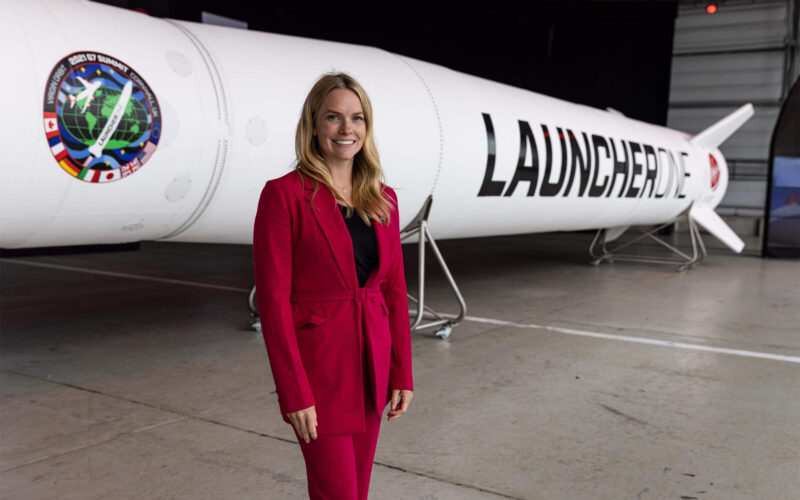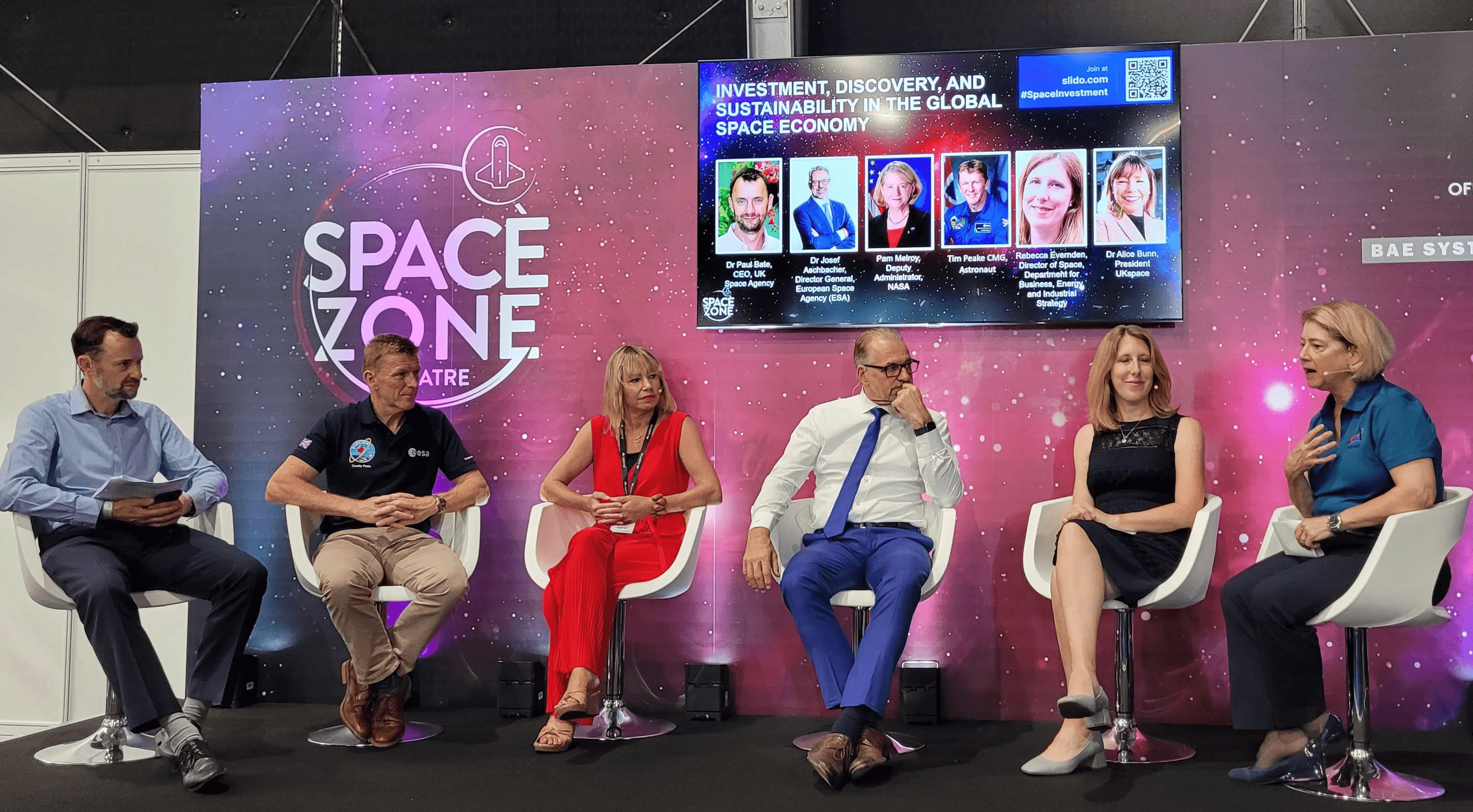After eight years of a “rollercoaster” journey, and 50 years after the aborted Black Arrow program, the UK is preparing for its first launch from the Spaceport Cornwall in September 2022.
AeroTime caught up with Melissa Thorpe, head of Spaceport Cornwall, for a chat about launches, avoiding the mistakes of Black Arrow, space junk, and inspiring the next generation at the Farnborough Airshow 2022.
It may seem strange that the UK doesn’t have space launch capabilities. The Black Arrow program was developed in the 1960s, but after one launch in 1971, the program was discontinued because it was deemed too expensive and too difficult.
Now the UK is preparing for its first launch of satellites in 2022. The launch, using Virgin Orbit’s Boeing 747, will carry six satellites into orbit.
The UK’s latest iteration of its space launch plans started back in 2014. Since then, the spaceport has been busy getting political support, investment, preparing the launch site, dealing with space flight regulations and building a relationship with Virgin Orbit, Thorpe explained.
“Now we’re only a few months away from launch,” Thorpe said, adding that September was the target although there was no specific date yet. The launch will be Virgin Orbit’s maiden UK launch and also make the UK the first country in Europe to launch satellites into orbit from home soil.
She highlighted the Black Arrow experience. “It’s taken another 50 years to get us back to this point. And we don’t want to make those same mistakes. We want to ensure that this is a sustainable capability that we can carry on for 50 years so that we stay part of the launch game.”
Spaceport Cornwall utilizes facilities at Cornwall Airport Newquay and Goonhilly Earth station. Thorpe said the combination of using an existing site, plus working with Virgin Orbit, which has already carried out launches from the air using its ‘Cosmic Girl’ Boeing 747 from the Mojave Desert, has helped to speed the process along and made it more cost effective.
“It’s bringing those two pieces together. We haven’t had to create anything from scratch,” Thorpe explained.
“It’s going to be incredible to see a launch on UK soil later this year,” British astronaut Tim Peake told a panel discussion at the airshow.
Thorpe admitted it would be a “challenging few years” while the UK Spaceport gets up and running and reaches a level where it can be globally competitive. Support from government, industry and academia will be crucial to achieve that, she said.
Space debris and sustainability
Thorpe said that one of the key issues for Spaceport Cornwall was how to launch more sustainably, to prevent debris from collecting in space or even falling back to Earth, such as fairings dropping into the sea.
“Honestly, it’s shocking. The irony of the space industry is that it does all this incredible stuff for our planet, with the technology we put up there. But the way those technologies get to space impacts our environment,” Thorpe said. Spaceport Cornwall is therefore keen to work with regulators on how to remove satellites from orbit safely, but also support new technologies to help clean up space.
Space panel at FIA 2022. Credit: AeroTime Team
European Space Agency Director Josef Aschbacher noted that the number of satellites being launched in the last two years alone is equivalent to the numbers launched since 1957. ESA wants to see debris neutrality by 2030. “One spacecraft in, one spacecraft out,” Aschbacher explained at a panel at Farnborough.
As Pam Melroy, deputy administrator, NASA and retired astronaut, said at Farnborough: “The worst secret about orbital debris is – we can’t find it; we can’t keep custody of it.” It’s the pieces which are too small to track but big enough to wipe out satellites which are the most dangerous, she explained.
Inspiring the next generation
Part of the aim of Spaceport Cornwall is to boost the UK space industry in general and also inspire the next generation.
Thorpe said it was encouraging to see that, even before launch, business and investment had come into the Cornwall area. “I thought five years from first launch, we’d see a growing cluster. But we’re seeing that now we haven’t even launched yet and we have satellite companies, space companies moving to be alongside it.”
Rebecca Evernden, director of space at the UK Department for Business Energy and Industrial Strategy (BEIS), said the UK wanted space companies to be recognised for their contribution to society and to become household names like aviation businesses. “When children are growing up, they say ‘I’d like to work for this company or this university that’s doing these amazing things’.”
Peake said that one of the great things about the space sector was that it was moving so fast, but that also made it a challenge to make sure you have the workforce available to fill the roles.
“A lot of these novel, innovative companies that are here today will need people who have got skills in advanced manufacturing, computer-aided design, artificial intelligence and these kind of things…There’s the inspiration part and then there’s also the ‘OK, how are we actually giving our young people the skills they need to go into the workplace?’”
Thorpe said the company was doing a lot of work with schools and hoped to excite children from deprived areas around Cornwall by showing them the launch on their doorstep.
“For us, that means not just getting them excited, but showing them pathways into the industry and that those pathways aren’t just an astronaut or an astrophysicist. There’s lots of different roles in the industry.”


